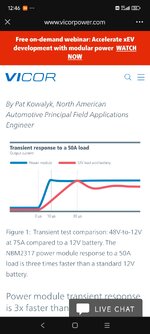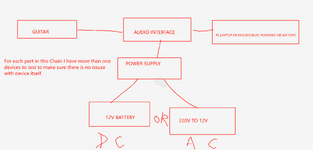falken1208
Junior Member level 1

- Joined
- Dec 5, 2024
- Messages
- 19
- Helped
- 0
- Reputation
- 0
- Reaction score
- 0
- Trophy points
- 1
- Activity points
- 184
I noticed when I recording electric guitar through audio interface. the result is heavily affected by power transient response. dont know why my ac mains are very slow and my waveform is not sharp. im now looking for offline fast transient response 12v power solution? do you have any idea?



